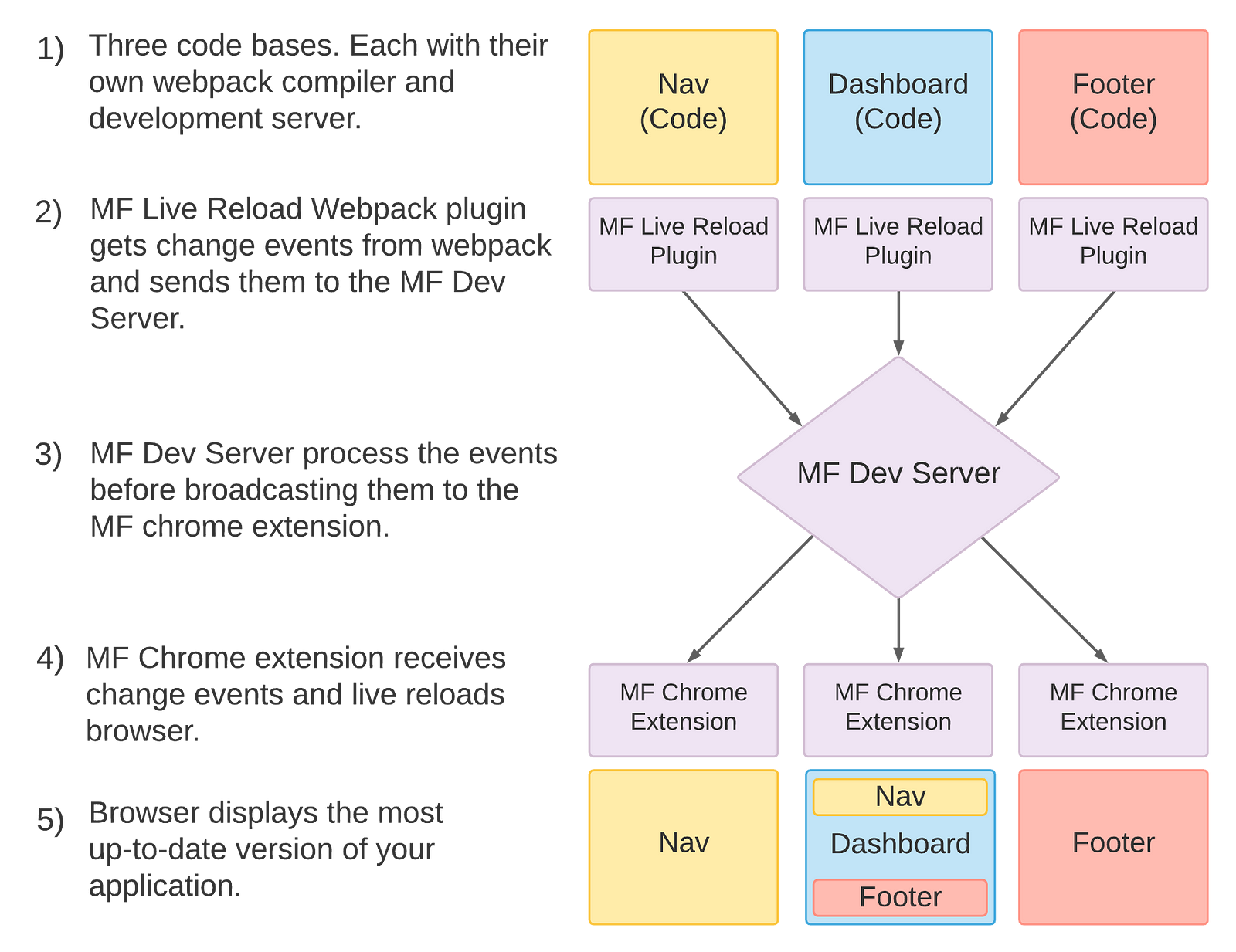
Security News
Research
Data Theft Repackaged: A Case Study in Malicious Wrapper Packages on npm
The Socket Research Team breaks down a malicious wrapper package that uses obfuscation to harvest credentials and exfiltrate sensitive data.
@module-federation/fmr
Advanced tools
This is the "brain" of the live reload feature.
It gets updates from webpack, and sends them to the chrome extension / client.
In the future, it will also include functionality that allows clients to subscribe and unsubscribe from each other.

> yarn
// comment out the "start" function in index.js
> node ./index.js
This will start the node server on port: 40001
In a seperate process / terminal window
This HTML file will open up a socket connection to the node sever on port 40001
MF Dev Server messages adhere to a common API. This API is:
{
time: Date.now(),
sender: 'string', // this is the UUID of the client
data: 'any',
type: 'string' // this is equivelant to an action type in redux terms
}
Passing around ctx
In MF Dev Sever, ctx is the main argument passed to each funciton because it
has almost everything you may need. From the top, ctx consists of:
wss: web socket server, a ref to the wss itselfsocket: this is the socket that is handling the connectionreq: this is the TCP requestid: this is the UUID of the requestmessage: this is the message (see above)FAQs
## Installation
The npm package @module-federation/fmr receives a total of 12,291 weekly downloads. As such, @module-federation/fmr popularity was classified as popular.
We found that @module-federation/fmr demonstrated a not healthy version release cadence and project activity because the last version was released a year ago. It has 4 open source maintainers collaborating on the project.
Did you know?

Socket for GitHub automatically highlights issues in each pull request and monitors the health of all your open source dependencies. Discover the contents of your packages and block harmful activity before you install or update your dependencies.

Security News
Research
The Socket Research Team breaks down a malicious wrapper package that uses obfuscation to harvest credentials and exfiltrate sensitive data.

Research
Security News
Attackers used a malicious npm package typosquatting a popular ESLint plugin to steal sensitive data, execute commands, and exploit developer systems.

Security News
The Ultralytics' PyPI Package was compromised four times in one weekend through GitHub Actions cache poisoning and failure to rotate previously compromised API tokens.